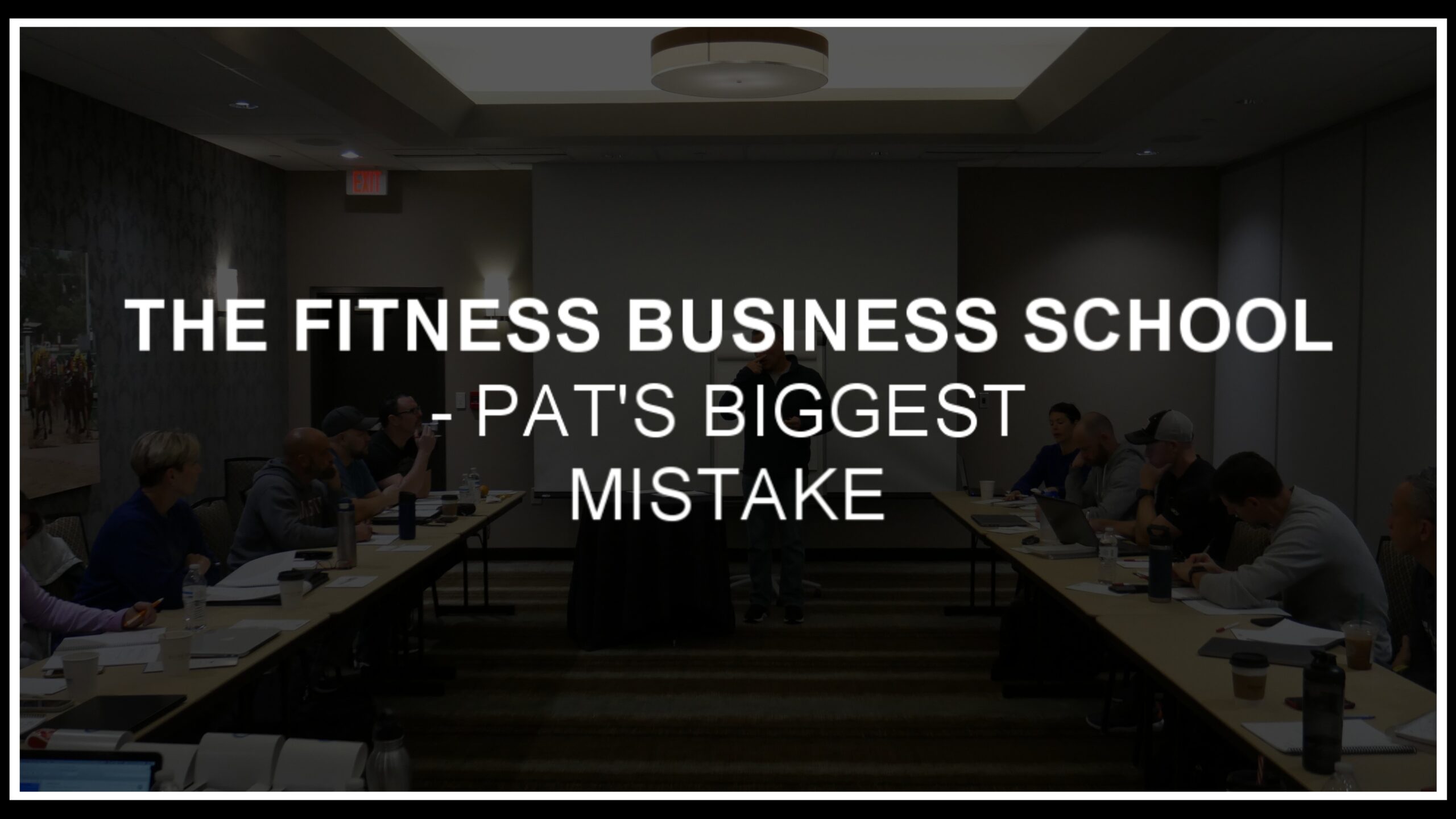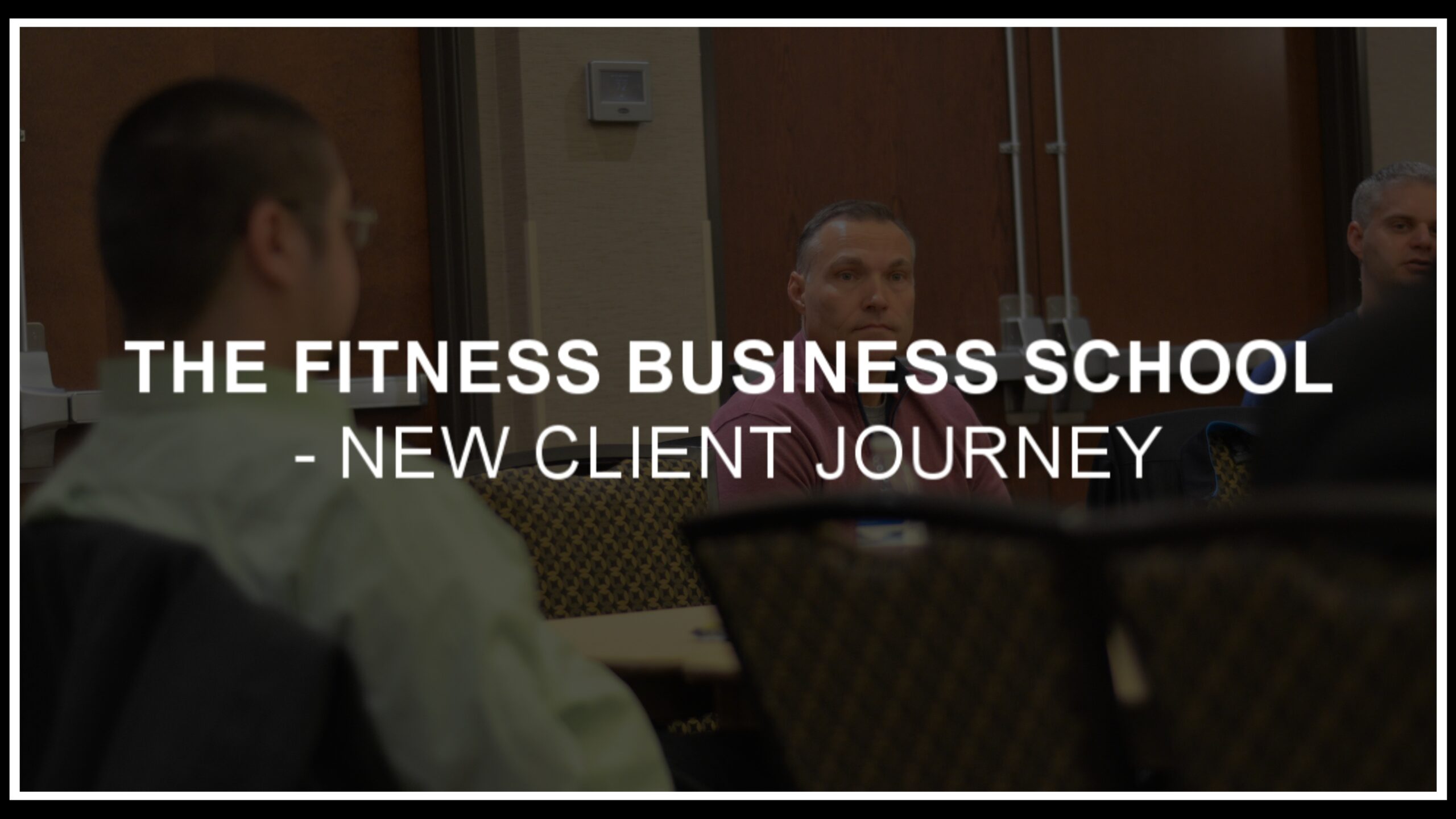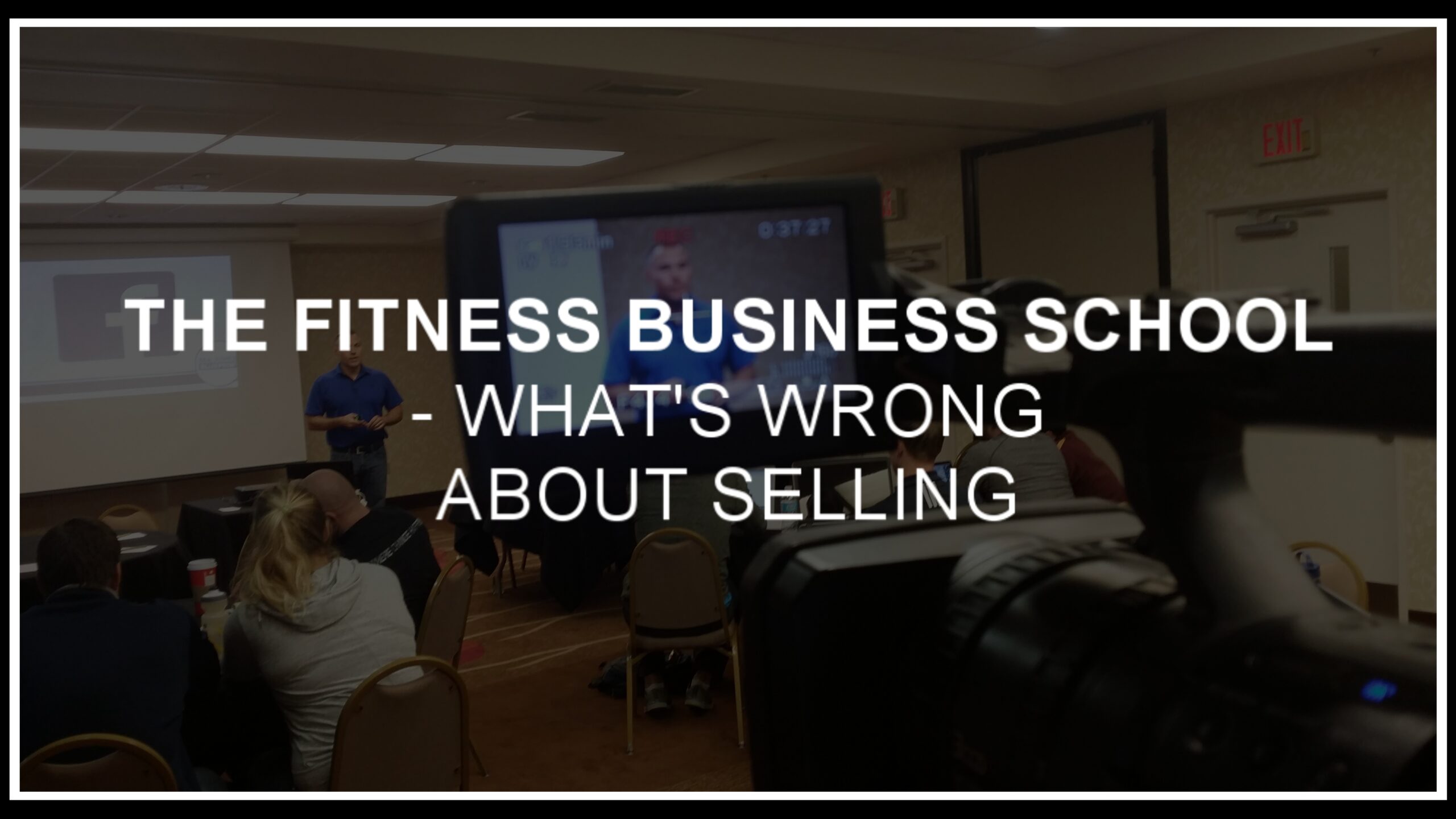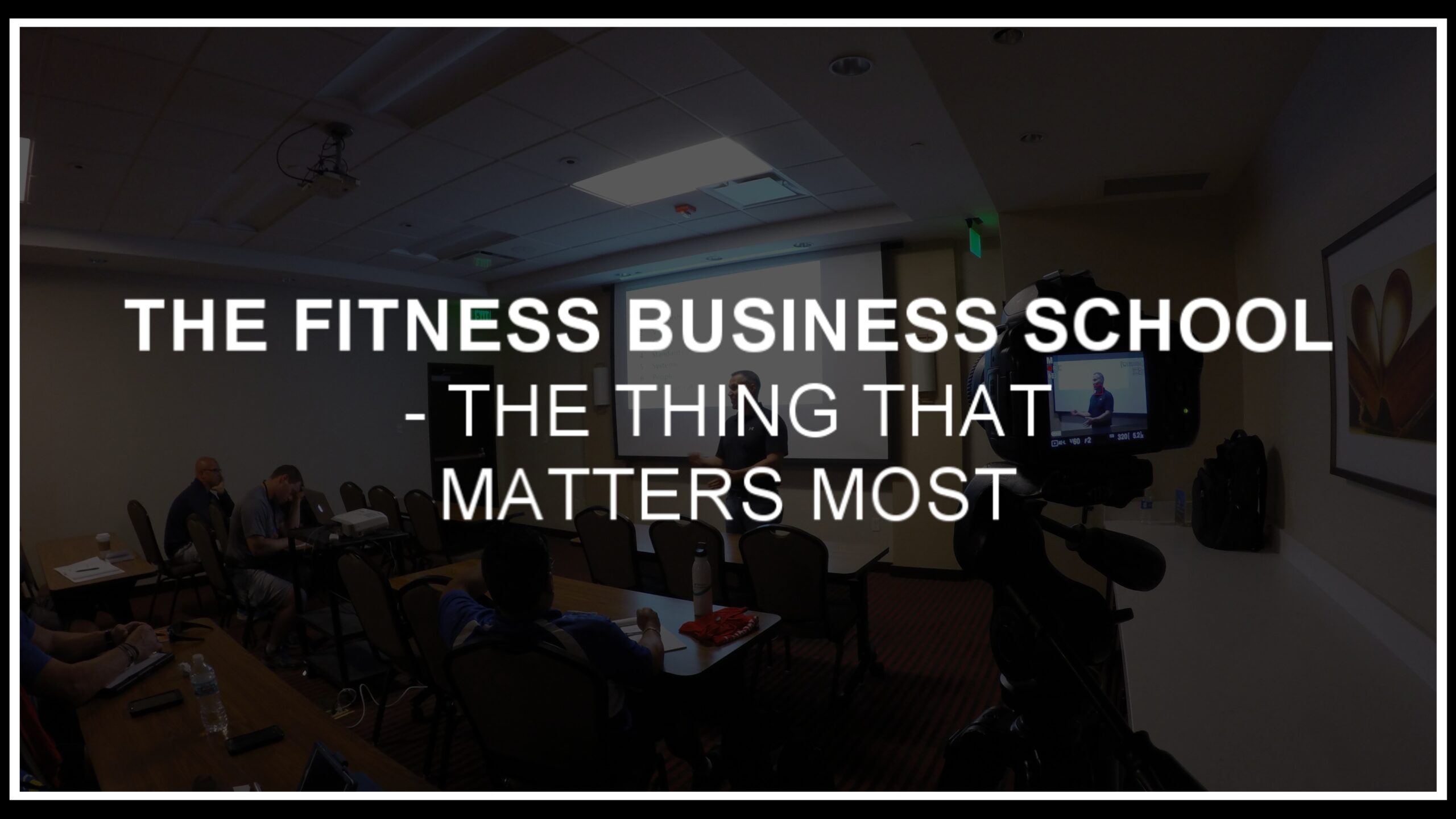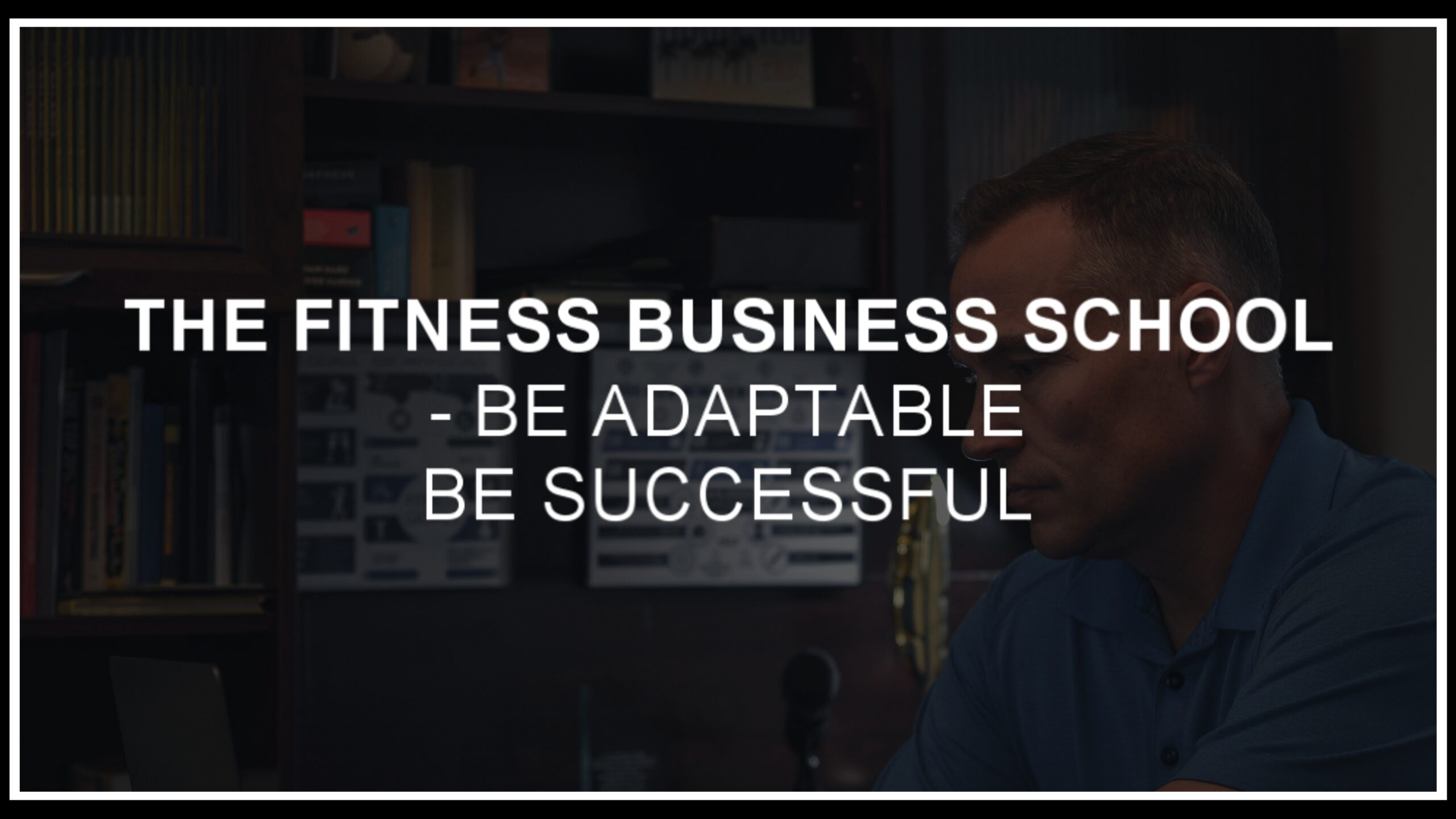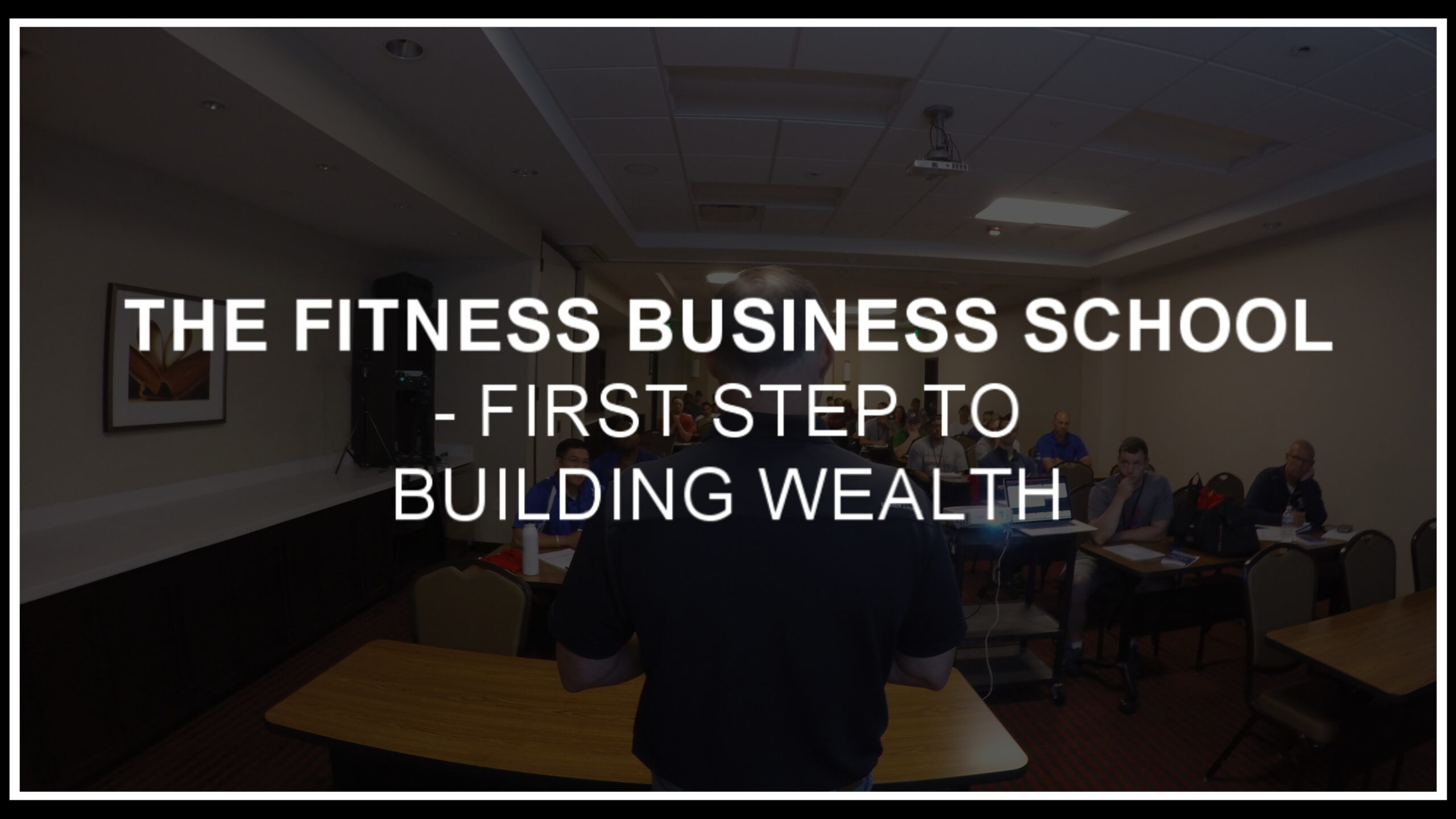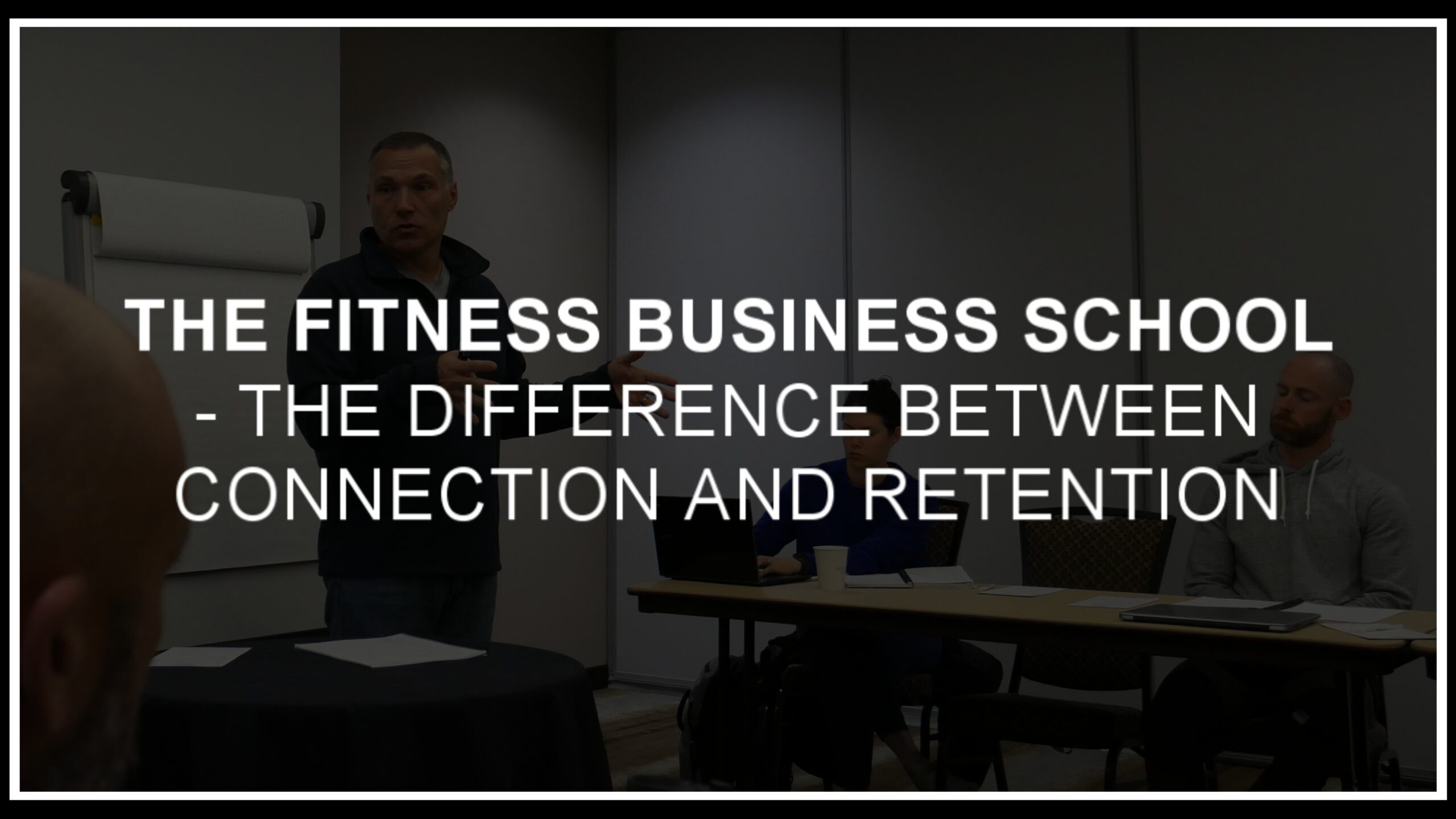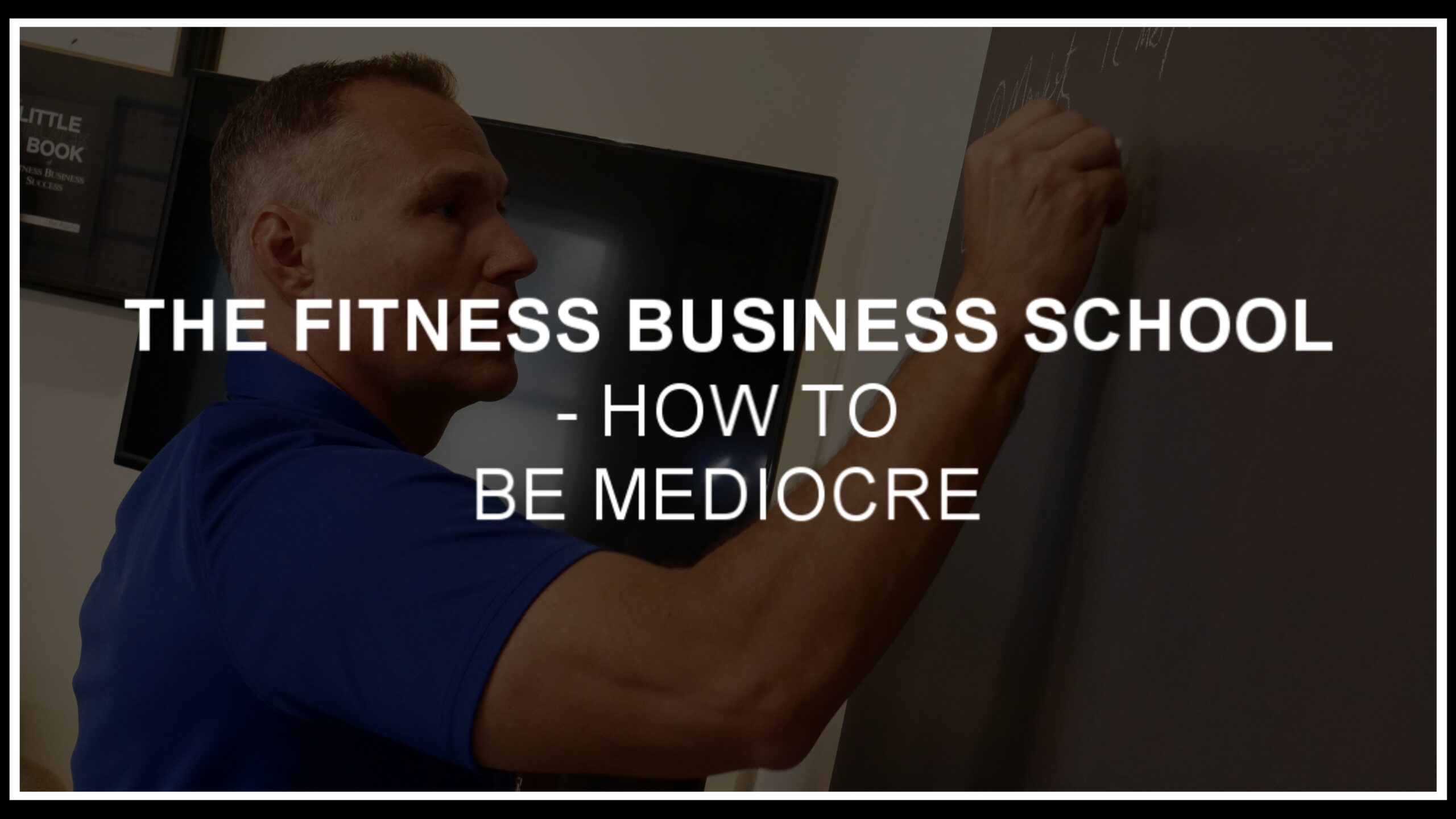Show Notes
- The conversation is too focused on the front-end
- Building wealth is more cash-flow than cash-out
- If your business is built around you, its not very sellable
- Invest your cash flow into other things
- Consider a profit-first system for your finances
- Invest in real-estate purchases or stock portfolios
- You can also invest in other businesses
Full Transcript
Hey, Pat Rigsby here, and in today’s episode I wanna talk with you about building wealth as a fitness business owner. Let’s get started.
Welcome to the Fitness Business School podcast, the show for fitness business owners who want to grow their income, increase their impact and improve their lifestyle. Be sure to listen to the end of this episode because we have a brand new special offer exclusive for listeners. So stay tuned.
Man, it feels even funny kind of talking about this topic, building wealth. It’s certainly a topic that if I think back to the first leg of my professional life would’ve never crossed my mind, and it would’ve probably made me a little bit uncomfortable even thinking about it. I was a college baseball coach,
strength coach, cobbled together other responsibilities at the university just to make ends meet. When I got into my business life, I had a pretty substantial net worth counting things like student loans and no real assets to speak of. And so the idea of building wealth was pretty unfamiliar. It was like, man, how
do I just afford a down payment on a house? How do I just stay ahead on, on things? Very early on in that kind of professional journey. But fast forward to today, and I’ve had the, the good fortune to be in the role of being a business owner and even a business mentor for almost 20 years now.
And then I’ve got to see so many of the businesses in our industry how people have done well, how people have parlayed small business success into wealth. And really the, there have been just a narrow set of pathways that I’ve seen people do really well with. And so I wanted to talk about those with you today
because it’s, I think that sometimes we’re mistaken in what our expectations are. And I wouldn’t even say misguided because that would imply that somebody’s guiding somebody in the wrong direction. And I don’t think that’s really the case so much is there’s just not a whole lot of discussion about it. Like most of
the time when you talk about fitness business these days, it seems like almost all the conversation from the coaches and experts and whatever else, almost all that conversation is about the, the whole front end of the business.
How do we get leads? How do we get clients? How do we make more revenue? But I think that sometimes the assumption is a fitness business owner that, okay, if I build this and I’m young and I don’t have a whole lot of foresight as to how much money I’m gonna need or don’t even care about what
I’m gonna need 20, 25, 30 years down the road, and you’re just worried about, Hey, I finally have made some money. I finally turned the corner so I’ve got some cash flow, so I’m gonna buy this and buy that. But if you wanna build wealth as a business owner, I would say that the first I guess, concept that I
would recommend that you embrace is almost without exception, small fitness business ownership is largely about cash flow, not cash out. Your business has the ability, depending on how you grow it, how you build it to generate a, a meaningful amount of cash flow.
And you can do it at a high profit margin. It’s cool that we don’t typically have to hold a ton of inventory or anything like that. It’s, you’re not having to float that money out there. You’ve got positive cash flow, you’ve got a real, I think, opportunity to create a little bit of a cash register, a machine that, that can pay
you now to have a great quality of life, but also allow you to create financial security in the future. On the other side of that, I think a lot of people think, Hey, I’m gonna build this business and then it’ll be this wonderful sellable asset that I’m gonna go sell for a multiple of five or whatever else. And I’ve talked
to this business broker, I’ve talked to this accountant, and they see businesses sell for, for this amount of money and that amount of money.
And so that’s what I’m gonna do. And, and I think that that lose sight of the fact that businesses that are largely built around the owner are just really hard to sell for a meaningful value, right? Like for nearly as much as it’s worth to that owner. And, and in many cases, it’s not just because the owner does a lot of the
stuff. So it’s not as simple as, Hey, I’ll hire somebody to do the stuff for me. It’s that a lot of the goodwill was created by the owner, and that type of business isn’t necessarily something that there’s always a mainstream market for. They’re just having sold a gym and having sold small businesses in the past, I
would tell you that there’s just not as many people in the market shopping for a small independent fitness business as there would be for a McDonald’s, right?
Like, it’s just the nature of the business buying landscape. The reason I want to tell you that is that doesn’t preclude you from doing great things in, in creating wealth with your business. It’s just you have to think about it a little bit differently. You have to think about using your business as a cash flow vehicle to
invest in other things. And I probably should even throw a disclaimer out here. It’s not that you have to, it’s just that having done this for this long and seeing this many businesses, one in 500 is that is gonna sell for the, that kind of cash out amount that you’re like, man, this is life changing money. And, and, and that
means 499 of those 500 probably need to adhere to what I’m suggesting now. And so what does that look like? The first thing that I would tell you is consider something like a profit first financial system of operating that you can certainly read the book.
We’ve got a wonderful resource in kind of our circles. And I know he works with a lot of fitness business owners, Billy Hofacker, that has adapted some of that methodology and just tweaked it to, to fit the businesses that he, the business he’s owned, that, the people that he’s worked with. But so the first thing
that you’re gonna have to do is actually get a handle on your numbers, on your finances and be proactive about how you’re managing them. And once you’ve done that, then you’re gonna have this ability to take some of this revenue that you generate and hopefully seeing these numbers and seeing the opportunity
this creates for you, it’s motivating to you to generate more, to keep feeding this machine. And then, you know, you have the two most common avenues I see people go with this, with that kind of cash flow that you generate business is either you invest in real estate, whether you’re buying the building
that you’re in or you’re buying some rental properties or in my, in, in my ecosystem, Doug Spurling has certainly made a name for himself and definitely built a wonderful little short term rental empire, investing in short term rental real estate, so you can invest in real estate.
So now you have these assets that are going to appreciate that you are going to build equity in over time. Or the flip side of it, you can invest in the, the stock market, right? You can go invest in you can find a solid financial planner and they can help manage your portfolio for you. You can do simple things like
just invest in index funds and let the stock market carry your net worth higher just by doing what it’s historically done. And, and those are two really straightforward ways to build wealth without saying, oh, wait a minute, I’m making, I’m betting everything on finding a buyer who will give me enough money to
justify all the work I’ve done for the past 30 years, or something like that. Which to me seems like a real high risk proposition. I am very much a fan of the cash flow mentality and say, okay, I’m gonna go invest this stuff in, in index funds that I don’t really have to do the legwork for.
So it’s probably a little bit more passive, though you won’t hear me use passive income a whole lot. I will tell you, if I had started some of this earlier, I probably would’ve been even more eager to follow Doug Spurling’s footsteps and do more of the short term rental stuff. I mean, I’ve owned some, a couple rental
properties and they were not short term rental and I didn’t enjoy that type of investing. And, and yeah, there are other things that you can do. You can certainly build a collection of small businesses. I know some people that have 3, 4, 5, 6 locations that if they sell those, it’s clear that they are not owner operator
driven and they’re not, the personality of the owner isn’t the the driving force in the business that a buyer would see. So you can do things that way, but it obviously that’s less common.
You probably know more people in your world that have taken cash flow and invested in the stock market or invested in rental properties than you have that have built a portfolio of five or more small fitness businesses. And then you can certainly go and invest in other types of businesses. I’ve known people
who’ve taken the money that they made in this cash flow business and gone and invested in other types of operations, both in the kind of health and fitness landscape and then outside of it. So there are avenues there, but I sometimes I think that we get so caught up in the day-to-day of what we’re doing, and maybe,
and some of it, if you’re like me and you came from a situation where you just didn’t really have a whole lot of money and you’re actually starting to make some money, sometimes you aren’t as careful with your money as, as you could be or have as much foresight with it.
So my recommendation is if you want to actually build wealth as a business owner, start to think about it this way. Don’t assume you’re gonna build something that you can cash out with. Don’t assume that you can keep waiting because the earlier you invest, the more you get that compound benefit of investing,
whether it’s in the stock market or accruing equity in real estate that you’re investing in, anything like that. But a lot of your ability to build wealth as a fitness business owner is it, it really just begins with appreciating and growing a cash flow focused business.
Thanks for listening to this episode of The Fitness Business School.
Before you go, I have a quick announcement:
One of of the things that we’ve been doing with our current clients is taking them through this Ideal Business diagnostic and really what it is, this checklist that allows you to pinpoint exactly what your business needs next so you can keep improving, keep growing, and build a business that you love to own, one that pays you well, one that allows you to have the impact you wanna have and one that allows you to have a lifestyle that you truly enjoy.
In this diagnostic, we walk through everything and we do an evaluation and can instantly pinpoint what you need to do next to build that business that you want. I’m going to extend this opportunity to get on with either me or my team and take you through this evaluation and fix your business’s most vital needs fast.
So if we take you through this, you’re gonna be able to make those vital changes that you need to finally have what I call your Ideal Business. If you’d be interested in going through this entirely free, risk-free diagnostic with us and learn what you already have in place, what you’re doing well and where are your greatest opportunities for rapid improvement are just shoot me an email with diagnostic in the subject line to [email protected].
Again, an email to [email protected] with diagnostic in the subject line will get you scheduled and take you through this evaluation to help you build the business you want.


